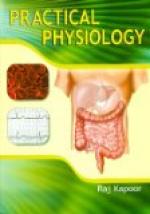The bacteria of consumption (bacillus tuberculosis) may retain their vitality for months, and then the dried expectoration of the invalids may become a source of danger to those who inhale air laden with such impurities (sec. 220 and Fig. 94).
Like other living organisms, bacteria need warmth, moisture, and some chemical compound which answers for food, in order to maintain the phenomena of life. Some species grow only in contact with air, others need no more oxygen than they can obtain in the fluid or semi-fluid which they inhabit.
396. Importance of Bacteria in Nature. We might well ask why the myriads of bacteria do not devastate the earth with their marvelous rapidity of propagation. So indeed they might, were it not for the winds, rains, melting snow and ice which scatter them far and wide, and destroy them.
Again, as in countless other species of living organisms, bacteria are subject to the relentless law which allows only the fittest to survive. The bacteria of higher and more complex types devour those of a lower type. Myriads perish in the digestive tract of man and other animals. The excreta of some species of bacteria act as poison to destroy other species.
It is true from the strictest scientific point of view that all living things literally return to the dust whence they came. While living they borrow a few elementary substances and arrange them in new combinations, by aid of the energy given them by the sun, and after a time die and leave behind all they had borrowed both of energy and matter.
Countless myriads of bacteria are silently at work changing dead animal and vegetable matter into useful substances. In brief, bacteria prepare food for all the rest of the world. Were they all destroyed, life upon the earth would be impossible, for the elements necessary to maintain it would be embalmed in the bodies of the dead.
397. Action of Bacteria. In certain well-known processes bacteria have the power of bringing about decomposition of various kinds. Thus a highly organized fungus, like the yeast plant, growing in the presence of sugar, has the power of breaking down this complex body into simpler ones, viz., alcohol and carbon dioxid.
In the same way, various forms of bacteria have the power of breaking down complex bodies in their immediate neighborhood, the products depending upon the substance, the kind of bacteria, and the conditions under which they act. Thus the bacteria lactis act upon the milk sugar present in milk, and convert it into lactic acid, thus bringing about the souring of milk.
[Illustration: Fig. 169.—Examples of Pathogenic Bacteria. (Drawn from photographs.)
A, spiral form of bacteria found in cholera
(Magnified about 1000
diameters)
B, rod-shaped bacteria (called bacilli)
from a culture obtained
in anthrax or
malignant fustule of the face. Diseased hides
carry this micro-organism,
and thus may occasion disease among those
who handle hides and
wool. (Magnified about 1000 diameters)
]




